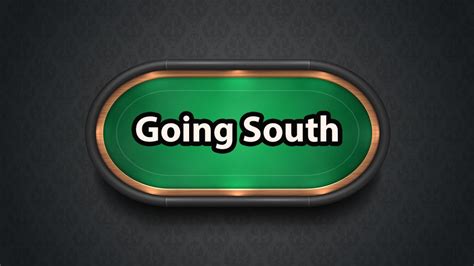Poker is a game of strategy and skill, but some players try to gain an unfair advantage by manipulating their chip stack. One such tactic is going south, which involves removing chips from the table to limit potential losses or hide winnings. In this article, we'll explore what going south means in poker, its implications, and why it's considered unethical and often illegal.
What Is Going South in Poker?
In a cash game, going south refers to the act of taking a portion of your chips off the table without informing others at the table. This can be done surreptitiously or openly, but the goal remains the same: to reduce your stake and limit potential losses. Some players might think that removing chips is harmless, but it's a clear example of angle shooting and can lead to serious consequences.
Why Is Going South Illegal?
Casinos and poker rooms consider going south illegal because it gives players an unfair advantage. When someone removes chips from the table, they're essentially hiding their winnings or limiting their potential losses. This tactic prevents opponents from getting back the money they lost previously, which is a fundamental principle of fair play.
Example of Going South
Imagine you're playing a $5/$10 No Limit game of Texas Hold'em live and lose a pot worth $4,000. After the hand ends, your opponent takes $2,000 from their stack and puts it in their pocket. This is a classic example of going south. By removing half of their stack, the player limits the amount they can lose in future hands.
Consequences of Going South
Going south can have severe consequences for players who engage in this behavior. Casinos may ban them from playing at their establishment, and online poker sites may suspend or terminate their accounts. Additionally, going south can damage a player's reputation within the poker community, making it harder to find other players willing to play with them.
Gray Area of Going South
While some casinos prohibit going south, others might not enforce this rule strictly. In such cases, players must be mindful of the rules and regulations set by the card room or casino. However, there's a gray area where players may need to help the casino enforce its rules, such as reporting suspicious activity or ratholing.
Going south is an unethical tactic that can lead to serious consequences for players who engage in it. While some might see removing chips as harmless, it's a clear violation of poker etiquette and can damage one's reputation within the community. Casinos and poker rooms take going south seriously, and players who continue to engage in this behavior risk being banned or facing other penalties.
Remember, poker is a game that requires skill, strategy, and respect for the rules and opponents. Going south undermines these principles and can lead to negative consequences for all involved.
